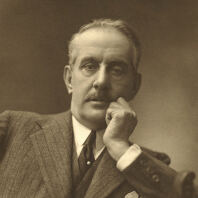Giacomo Puccini
composer
Apart from Richard Strauss, no other composer since the end of the 19th century has written as many works for the opera stage that are still popular today as Giacomo Puccini. In addition to the quintet of undisputed masterpieces – Manon Lescaut, La Bohème, Tosca, Madama Butterfly and Turandot – his seven other pieces for musical theatre are also highly regarded. They are characterised by colourful instrumentation, orchestral and vocal power, captivating dramaturgy and poignant melodies – Puccini had a decisive influence on music theatre between late Romanticism and Modernism.
Puccini came from a family of composers who at the time of his childhood had shaped the musical life of his native town of Lucca for more than 120 years. He completed his studies in Milan. It was there, at the legendary La Scala, that his first opera Le Villi was given its first performance. Puccini’s success began shortly after the premiere of La Bohème in 1896, conducted by Arturo Toscanini, and quickly spread throughout Europe and America, bringing him a handsome fortune. The psychological range of the female characters he created is as varied as the often exotic locations of Puccini’s operas, which are set in Japan, America and China, among other places: from the gentle Mimì in La Bohème to the courageous Tosca and the merciless Turandot, whose change of heart occurs only at the end of the opera. Today, his music dramas are associated with Verismo, the Italian form of Realism, which is particularly evident in the fact that the protagonists are simple people in a rural or urban milieu, not aristocrats or mythological figures. Sir Simon Rattle and Kirill Petrenko continued the Puccini tradition of the Berliner Philharmoniker, which was founded by Karajan and paused during the tenure of Claudio Abbado. Kirill Petrenko has already conducted the one-act opera Suor Angelica as part of an education project, and Madama Butterfly at the 2025 Easter Festival in Baden-Baden.